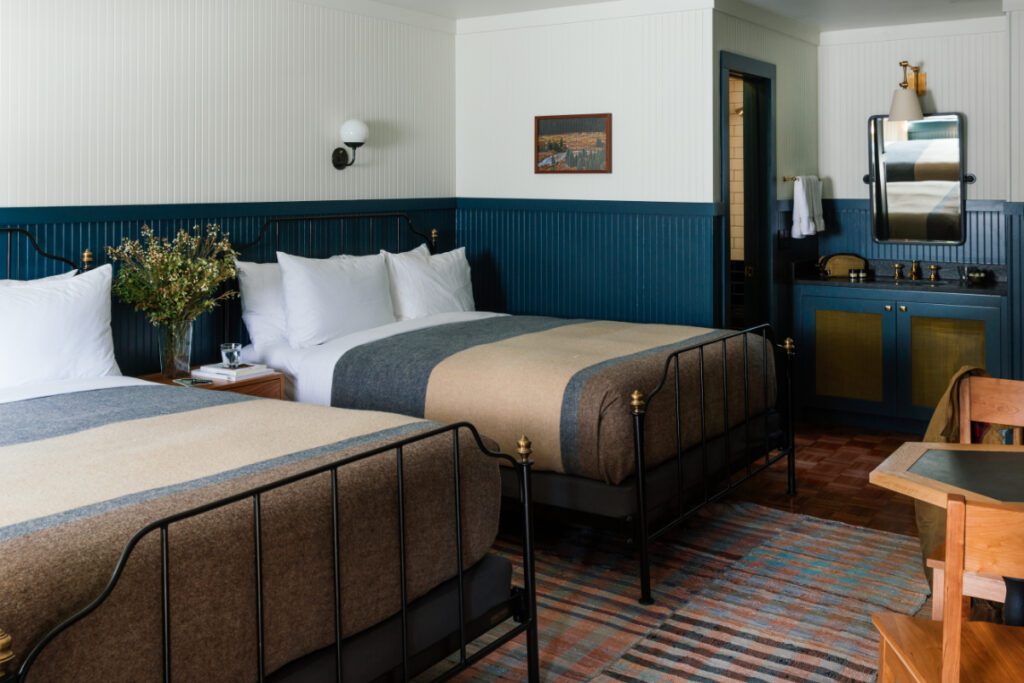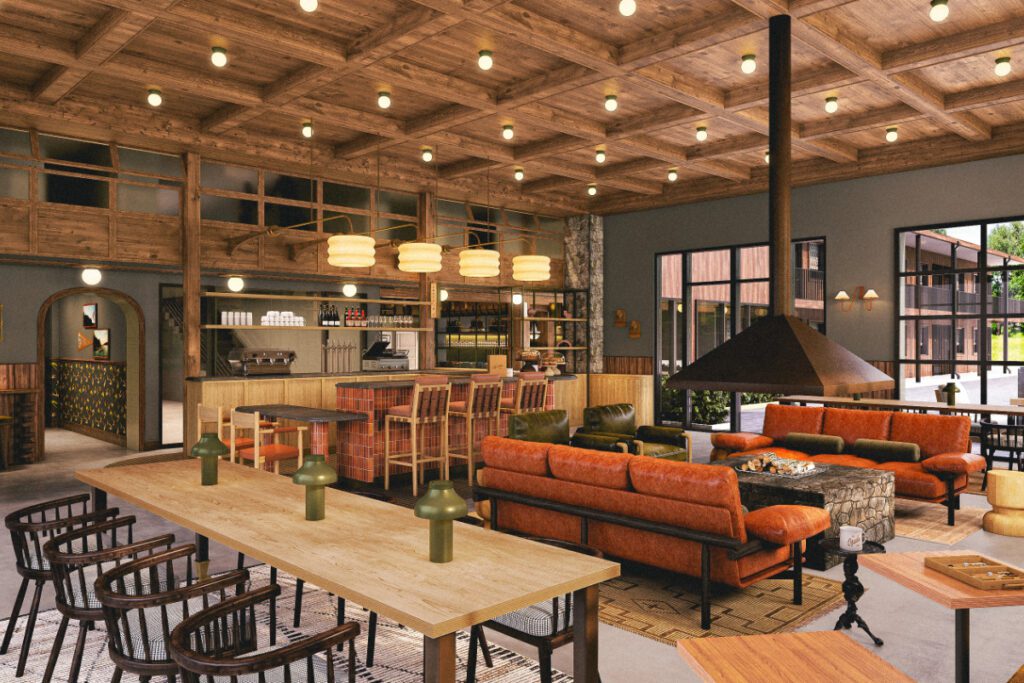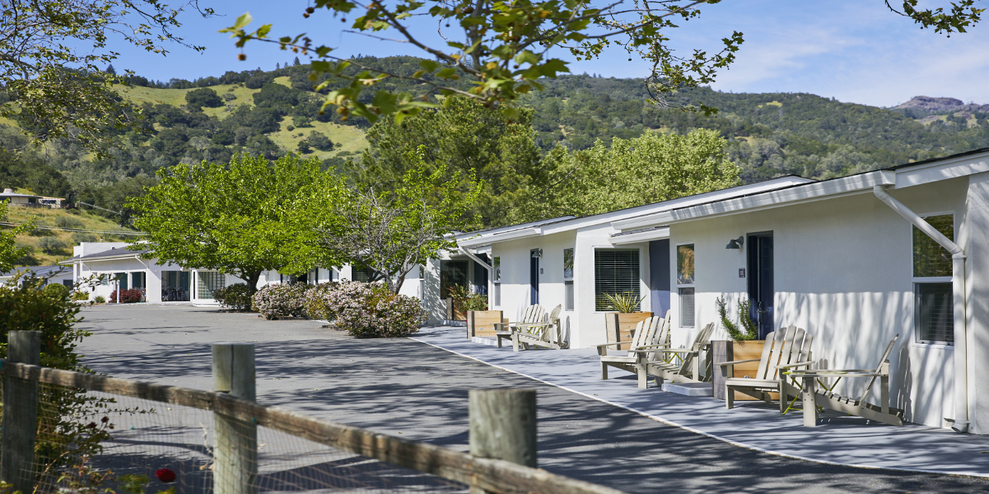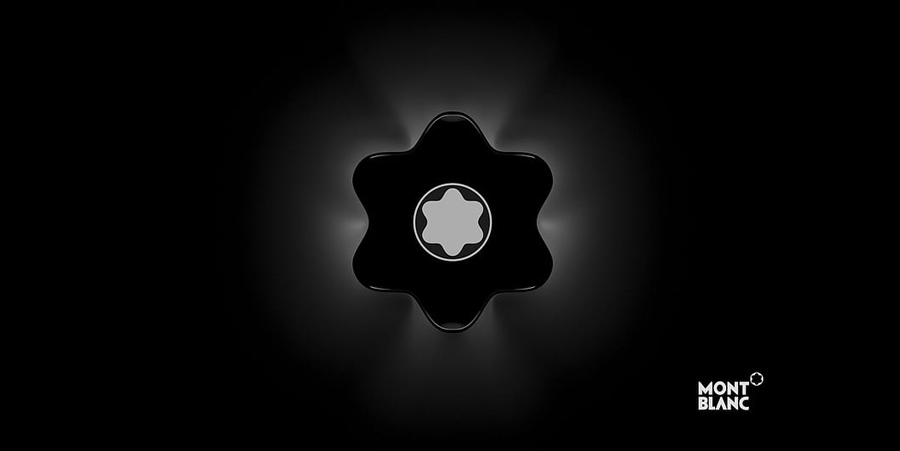Investor Stephen Chan has co-created numerous stand-alone boutique hotels, including a high-end hostel. But crafting a new playbook for each property is time-consuming. Can his team master the art of master-branding?
One of the most influential players among boutique hotels, Eagle Point Hotel Partners, didn’t set out in 2010 to sidestep the major global hotel brands.
“Our first deal, six months after we started, was buying all of the debt on the Mondrian Soho — it was a $155 million deal,” said Stephen Chan, co-founder of Eagle Point Hotel Partners. Chan runs an investment company focusing on hotel real estate, along with co-founder Erik Warner.
They eventually took it over, and four years later sold the 270-room property for $205 million.
Chan and Warner soon learned, though, that investing in big, branded hotels wasn’t their company’s mission.
“We realized that we didn’t want just to buy Hampton Inns and Courtyards, and all this stuff,” Chan said. “We were younger guys in our 30s, and we were looking for something different.”
Since then, Eagle Point, which started with the backing of John Pritzger of Geolo Capital, has taken a turn toward boutique hotels.
Their portfolio now includes the 50-room Anvil Hotel in Jackson, Wyoming, the 63-room Calistoga Motor Lodge and Spa in Northern California (which they’re expanding to 102 rooms by early next year), the 55-room Sound View Greenport, and the 35-room Harborfront Inn on the North Fork of Long Island, along with a handful others — including the 102-room The Ozarker Lodge, which opens this summer.
“We feel like we have a little bit more white space and opportunity to add value by doing boutique and lifestyle,” Chan said.
One way they’ve filled that white space is with their 50-bed Cache House, an upscale boutique hostel (yes, hostel) that sits below the Anvil Hotel.

Cache-ing in
Chan and Warner are wondering how they can template their concepts, like Cache House, so they don’t have to keep re-writing the playbook each time. Even though they’re supporters of the Independent Lodging Congress, an industry event advocating indie hoteliers, they see room for branding.
“We’re not anti-brand,” said Chan. “Since we’ve done Anvil and Cache House, Calistoga Motor Lodge, The Ozarker, we can probably roll out more of them, successive ones, easier. This way, you don’t have to create everything custom for the first time.”
When Chan and Warner look at an investment property, Chan said, they ask a key question. “We’ll say, ‘What does the real estate speak to us?’ and let the real estate tell us what it could be.”
Often, that means upgrading a boutique hotel to bring it into the 21st century (aka a value-add reposition) – like what they did with Sound View Greenport or Calistoga Motor Lodge. Other times, they’ll go the soft brand route, which is the plan for their latest hotel development project in Santa Cruz, California.
“We would love to keep it independent, but it’s a lot bigger [approximately 200 rooms], so we’ve been talking to Design Hotels, for example, which is part of Marriott, and fits our aesthetic and what we’re trying to do,” said Chan.
For a larger hotel, Marriott’s distribution helps, too.
Or, like with Cache House, the space demands something entirely new.
“The hotel is called Anvil Hotel, because back in the day, when the property was first developed, there was a blacksmith who made horseshoes in the lower level, and they had a long ramp, and really high ceilings and the horses would come down,” said Chan.
That basement level was later converted to employee housing, when Chan and Warner bought the hotel in 2015. They found the property because Warner spent his summers working at the hotel when he was a student at Cornell.
“We thought, ‘Hey, let’s make it into the best hostel experience we can do,” said Chan. Their reimagined Anvil Hotel opened in 2017, but Cache House didn’t open until February 2020. “We used the cash flow from the Anvil property, and put it down into the basement area,” explained Chan.
Boutique Branding Challenges
Eagle Point took cues from capsule hotels in Japan to craft the Cache concept — emphasizing privacy — and merge it with luxury boutique amenities.
“There are beautiful subway tiles, stones, and Waterworks-level water fixtures,” said Chan.
Generator Hostels this is not.
“You have your own space, so you have a really nice curtain; you have the best, luxurious linens,” said Chan. “It’s not your average hostel. It’s the best hostel experience in America, I would say.”
Boutique hotels like Faraway on Nantucket and Atticus Hotel in McMinnville, Oregon, have upscale bunk rooms available, too, but haven’t built a whole hostel concept around it.

Hostel Reception in the U.S.
Cache House is still hostel living, though, with a lounge area and communal bathrooms, so Chan wasn’t sure if the concept would go over with U.S travelers.
“We were concerned that in America, people would be rude and make noises, but people are really respectful,” Chan said. “We were really surprised.”
Also, opening a hostel just months before the pandemic lockdowns was unfortunate timing. But, since hotel rates are skyrocketing this summer in the most popular markets, Cache House is having a moment with its affordability factor and the sense of connection it provides.
The hostel is appealing to more people than they first envisioned.
“You don’t need to be a solo traveler — we’ll have groups of, say, five friends, and they’re like, ‘This is the best experience — we wouldn’t have gotten the same experience if we were in our own hotel room,’” Chan said.
Teaming Up
Chan knew even as a child he wanted to work in hotels.
“I grew up in the restaurant business, as my parents had Chinese restaurants in New Jersey,” said Chan. “I told my parents I am either going to be an architect or I’m going to be in hotels because I love places and creating things.”
Chan went to Cornell School of Hotel Administration (as did Warner) and worked for HVS (appraising hotels around the country) at different times. They became industry friends on the conference circuit.
It was at a cocktail party in 2009, though, when the two had the idea to start their own company. “A lot of our peers were doing the same thing at the time, and we were like ‘Hey, we should be doing something,” said Chan.
They teamed up, and now over a decade in, they’re scouting what’s next, including potential properties in towns like Estes Park, Colorado, and Moab, Utah (which would work well as locations for other outdoorsy, lodge-style hotels).
To Warner and Chan, it’s not just about the city or town where the hotel is located, but it’s also the experiences on the property that keep guests coming back.
“When you look back — you don’t necessarily remember the hotel you were staying at for a soccer tournament or a business meeting, but you remember the place where you had this amazing conversation with your grandmother or brother — or whoever — at the fireplace,” said Chan.
“We’re in the business of not just putting a place to sleep for the night, but really kind of creating memories,” Chan said.
___
This article first appeared in skift.com
Seeking to build and grow your brand using the force of consumer insight, strategic foresight, creative disruption and technology prowess? Talk to us at +971 50 6254340 or engage@groupisd.com or visit www.groupisd.com/story


